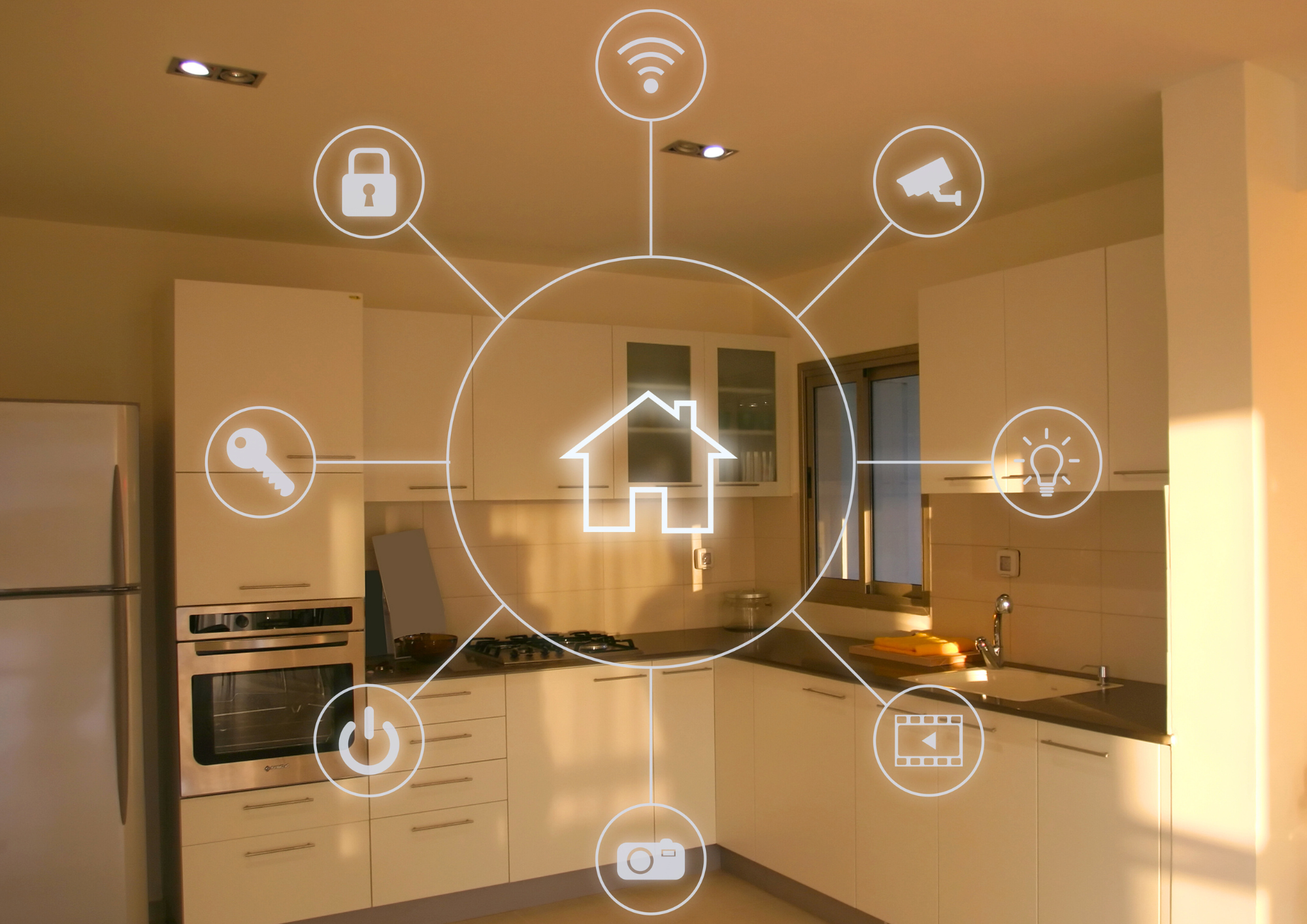Smart home technology is a term that refers to the use of devices, software, and services that can automate, control, and monitor various aspects of a home environment. Smart home technology can enhance the comfort, convenience, security, and energy efficiency of a home, as well as provide remote access and integration with other smart devices.
The importance of home automation is growing as more people seek to improve their quality of life, save money, and reduce their environmental impact. According to a report by MarketsandMarkets, the global smart home market is expected to grow from USD 78.3 billion in 2020 to USD 135.3 billion by 2025, at a compound annual growth rate (CAGR) of 11.6%.
There are many companies offering smart home products and services, each with their own strengths, features and ecosystems. In this article, we will provide an overview of some of the major players in the smart home sector.
What We'll Cover
HiveHome - The Integration Expert
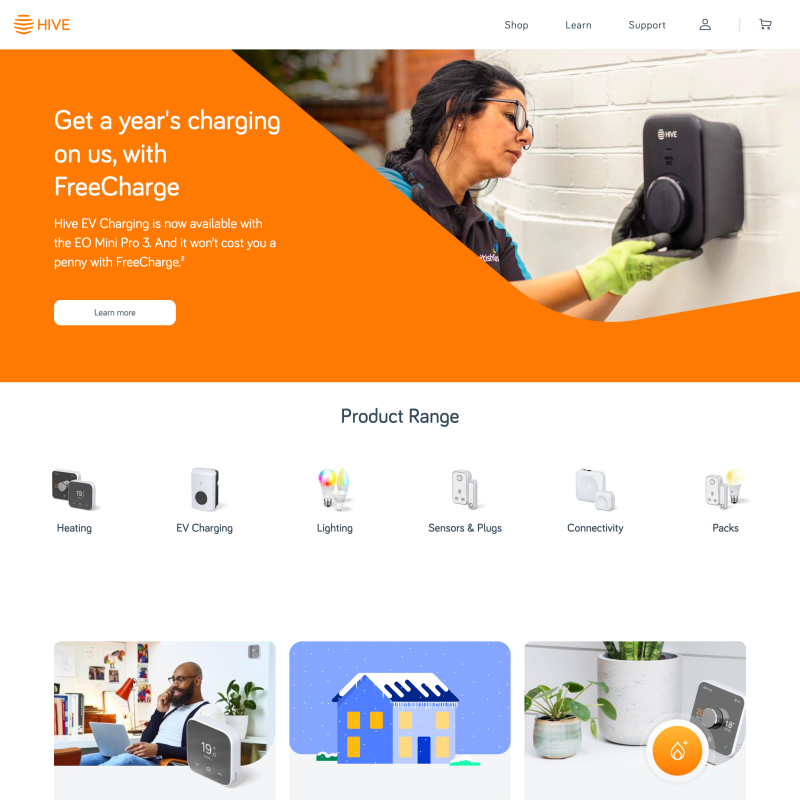
HiveHome is a UK-based company that specializes in smart home integration. It was founded in 2012 as a joint venture between British Gas and AlertMe, a smart home platform provider. HiveHome.com has a strong market position in the UK, with over 1.7 million customers and a 70% share of the smart thermostat market.
HiveHom offers a range of smart home products, including:
- Smart Thermostats: These devices allow users to control and schedule their heating and hot water from anywhere, using their smartphone, tablet, or voice assistant. They can also learn from user behavior and adjust the temperature accordingly.
- Intelligent Lighting Solutions: These products include smart bulbs, plugs, and sensors that can be controlled remotely, set to turn on and off automatically, or change color and brightness according to the mood or time of day.
- Security Cameras: These devices provide live HD video streaming, night vision, two-way audio, and motion detection. They can also send alerts to the user’s phone and record clips to the cloud.
One of the unique features of HiveHome is its interconnectivity through the Hive app. The app allows users to manage all their Hive devices from one place, as well as integrate them with other smart home products from partners such as Philips Hue, Google Nest, Amazon Alexa, and Samsung SmartThings. The app also provides insights, tips, and rewards to help users save energy and money.
Nest (Google Nest) - The Intelligent Home Innovator
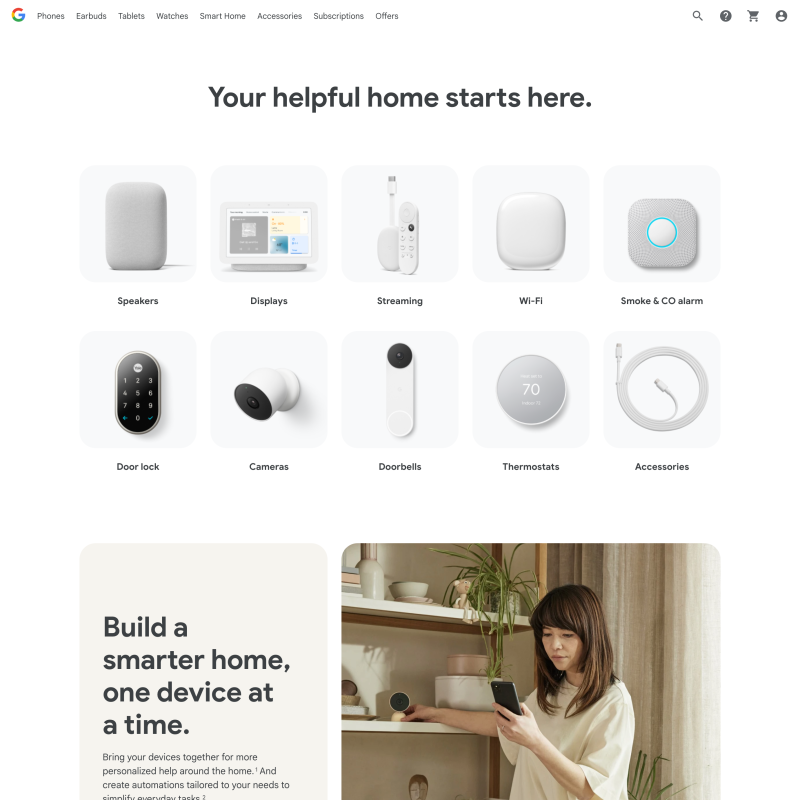
Nest is a company that was founded in 2010 by former Apple engineers Tony Fadell and Matt Rogers. It is known for its innovative and elegant smart home products, such as the Nest Learning Thermostat, which was the first smart thermostat to be certified by Energy Star. In 2014, Nest was acquired by Google for USD 3.2 billion, and in 2019, it was rebranded as Google Nest, becoming part of the Google Home ecosystem.
Nest offers a variety of smart home products, such as:
- Learning Thermostats: These devices can learn from user habits and preferences, and automatically adjust the temperature to save energy and provide comfort. They can also sense when the user is away and switch to Eco mode, or show the leaf icon when the user chooses an energy-efficient setting.
- Smart Doorbells and Cameras: These products include the Nest Hello video doorbell, which can recognize faces and announce visitors, and the Nest Cam indoor and outdoor cameras, which can provide 24/7 live video, night vision, person alerts, and activity zones.
- Smoke Detectors and Security Systems: These products include the Nest Protect smoke and carbon monoxide alarm, which can speak and tell the user what and where the problem is, and the Nest Secure alarm system, which can detect motion, entry, and tampering, and can be armed and disarmed with a tap, a passcode, or a key fob.
One of the main advantages of Nest products is their integration with the Google Home ecosystem, which includes the Google Assistant, Google Home speakers, Google Chromecast, and other Google devices and services. Users can control their Nest products with their voice, access them from the Google Home app, and create routines and scenes with other compatible devices. Nest products also use machine learning and artificial intelligence to provide predictive and personalized adjustments, such as adjusting the thermostat based on the weather, or turning on the lights when the user arrives home.
Ecobee - The Eco-Conscious Pioneer
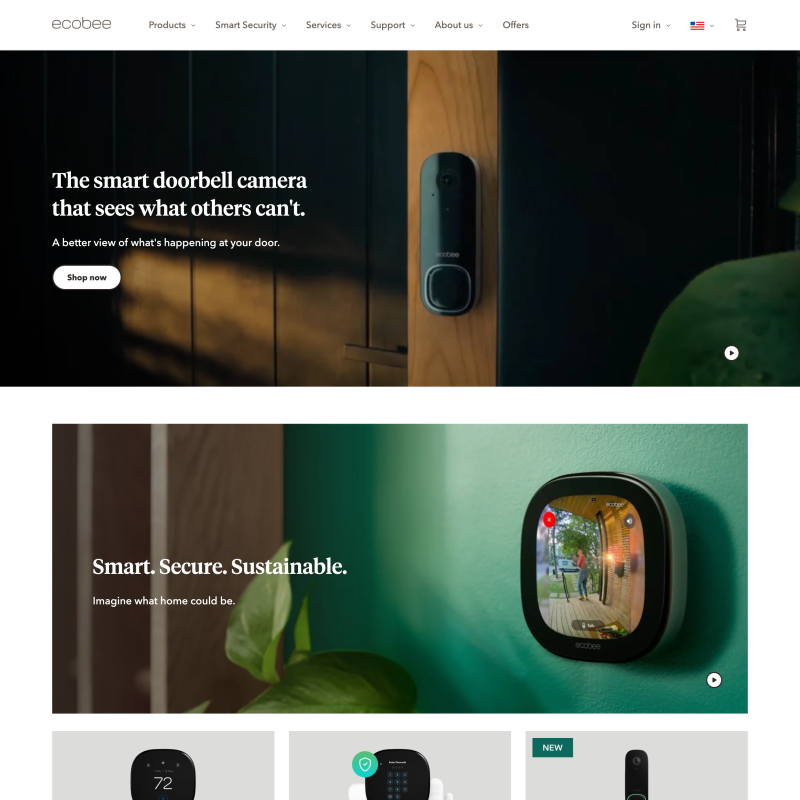
Ecobee is a Canadian company that was founded in 2007 by Stuart Lombard, a former venture capitalist and engineer. It is one of the pioneers of smart home technology, launching the world’s first Wi-Fi-enabled smart thermostat in 2009. Ecobee has a strong environmental focus, aiming to reduce the carbon footprint of its customers and donating 1% of its revenue to environmental causes.
Ecobee’s signature products include:
- Smart Thermostats with Energy Reports: These devices can adjust the temperature based on the user’s schedule, presence, and preferences, as well as the weather and humidity. They can also provide monthly energy reports and savings estimates, and participate in demand response programs to reduce peak energy usage.
- Smart Cameras with Voice Control: These devices can provide 1080p HD video, night vision, two-way audio, and person detection. They can also act as smart speakers, with built-in Amazon Alexa and Spotify integration.
One of the key features of Ecobee products is their energy-saving capabilities and tools. Ecobee claims that its smart thermostats can save up to 23% on heating and cooling costs, and that its customers have saved over 17.6 TWh of energy since 2007. Ecobee also provides tools such as Home IQ, which analyzes the user’s home energy efficiency and provides tips and recommendations, and eco+, which automatically adjusts the thermostat to save energy and money.
Another distinctive feature of Ecobee products is their use of SmartSensor, a wireless device that can measure the temperature and occupancy of different rooms in the home. SmartSensor can help the thermostat to balance the temperature across the home, and to focus on the rooms that matter most to the user.
Ring - The Guardian of the Neighborhood
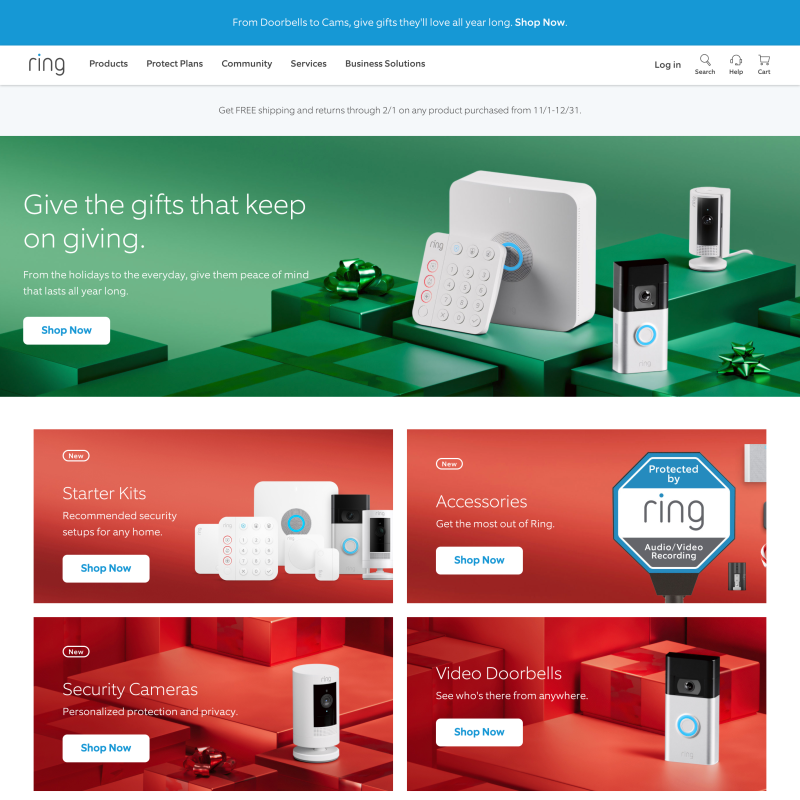
Ring is a company that was founded in 2013 by Jamie Siminoff, an entrepreneur and inventor. It is best known for its video doorbells, which allow users to see, hear, and speak to visitors from anywhere, using their smartphone, tablet, or PC. In 2018, Ring was acquired by Amazon for USD 1 billion, and became part of the Amazon Alexa ecosystem.
Ring offers a comprehensive range of security solutions, such as:
- Video Doorbells: These devices can provide HD video, two-way talk, motion detection, and night vision. They can also send alerts to the user’s phone when someone presses the doorbell or triggers the motion sensors.
- Security Cameras and Smart Lighting: These products include indoor and outdoor cameras, floodlight cameras, spotlight cameras, and solar-powered cameras, as well as smart lights, bridges, and transformers. They can provide similar features as the video doorbells, as well as sirens, color night vision, and customizable motion zones.
One of the unique features of Ring products is their community-centric approach, which aims to create safer neighborhoods and prevent crime. Ring provides a free app called Neighbors, which allows users to share videos, photos, and alerts with their neighbors, and to receive real-time safety information from local law enforcement and public safety agencies. Ring also partners with over 4,000 police and fire departments across the US, allowing them to request access to user videos for investigations, with the user’s consent.
Another benefit of Ring products is their compatibility with Amazon Alexa, which enables users to control their devices with their voice, view live video on Echo Show devices, and create routines and scenes with other Alexa-enabled devices. Ring also offers a subscription service called Ring Protect, which provides cloud video storage, extended warranties, and professional monitoring.
Honeywell Home - The Diverse Home Automation Veteran

Honeywell Home is a brand that belongs to Resideo Technologies, a spin-off company from Honeywell International, a global conglomerate with a long history in home automation and security. Honeywell Home offers a diverse range of smart home products and services, covering heating, cooling, security, air quality, and water.
Honeywell Home’s diverse product lines include:
- Thermostats: These devices include the T-Series, the Lyric, and the Round smart thermostats, which can provide features such as geofencing, adaptive recovery, smart alerts, and voice control.
- Security Systems: These products include the Smart Home Security System, which consists of a camera base station, sensors, key fobs, and indoor and outdoor cameras, and the Total Connect Remote Services, which allow users to control and monitor their security system from anywhere.
One of the advantages of Honeywell Home products is their cross-platform compatibility, which allows users to integrate them with various smart home ecosystems, such as Amazon Alexa, Google Assistant, Apple HomeKit, Samsung SmartThings, and IFTTT. Honeywell Home also provides a user-friendly app called Honeywell Home, which allows users to control and monitor their devices, as well as receive notifications, alerts, and tips.
Comparative Analysis
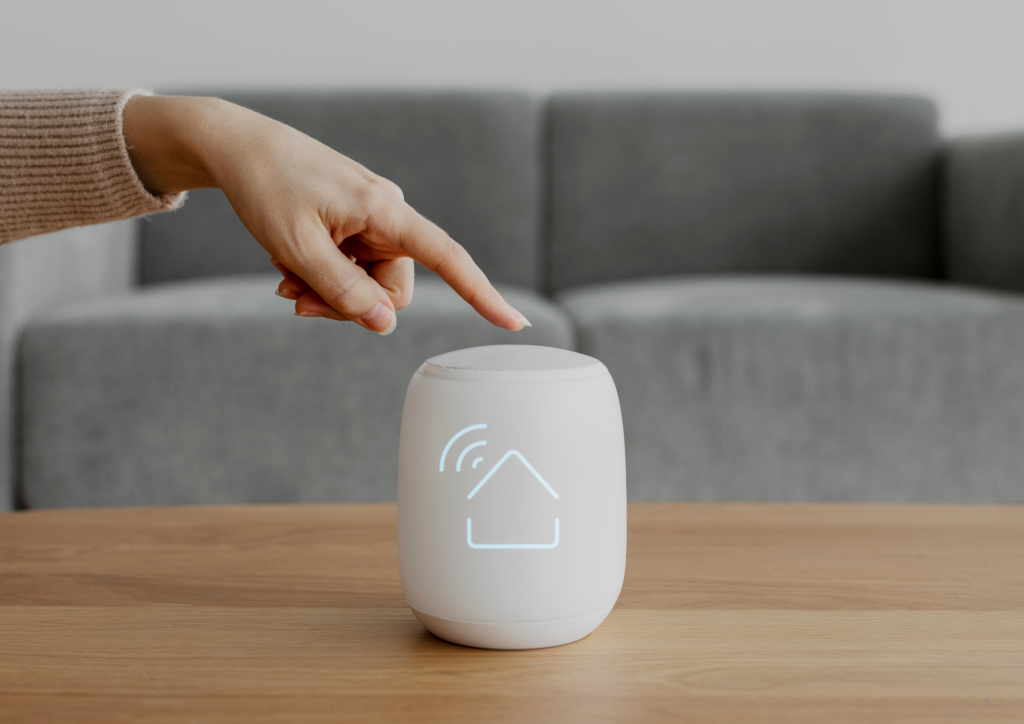
The smart home market is highly competitive and dynamic, with different companies offering different products, features, and ecosystems. To compare the performance and potential of the key players in the industry, we can look at some of the market trends and consumer preferences, as well as the competitive advantages and challenges of each company.
Some of the market trends and consumer preferences that influence the smart home industry are:
- The increasing demand for convenience, comfort, security, and energy efficiency in the home environment, especially in the wake of the COVID-19 pandemic, which has increased the time spent at home and the need for remote access and control.
- The growing adoption of voice assistants, such as Amazon Alexa, Google Assistant, and Apple Siri, which provide a natural and intuitive way to interact with smart home devices, as well as enable integration with other smart home products and services.
- The rising awareness and concern for environmental issues, such as climate change, air pollution, and water scarcity, which motivate consumers to seek smart home solutions that can help them reduce their carbon footprint, energy consumption, and water usage.
- The expanding availability and affordability of smart home products, as well as the improvement of wireless connectivity, cloud computing, and artificial intelligence, which enable more innovation and functionality in the smart home industry.
Some of the competitive advantages and challenges of each company are:
| Company | Advantages |
| HiveHome | The company has a strong position in the UK market, with a loyal customer base and a high market share. It also has a unique selling point of providing seamless integration and interconnectivity between different smart home products and platforms, through its Hive app and its partnerships with other companies. However, the company faces the challenge of expanding its presence and recognition in other markets, especially in the US, where it competes with more established and popular brands. It also needs to keep up with the technological advancements and consumer expectations in the smart home industry, and to differentiate itself from other integration-focused companies, such as Samsung SmartThings and IFTTT. |
| Nest (Google Nest) | The company is known for its innovation and design, as well as its integration with the Google Home ecosystem, which provides a powerful and comprehensive smart home experience. It also leverages the machine learning and artificial intelligence capabilities of Google, which enable its products to provide predictive and personalized adjustments, as well as to learn from user behavior and preferences. However, the company also faces some challenges, such as the privacy and security concerns of some consumers, who may be wary of sharing their personal data and home activities with Google. It also has to deal with the competition from other tech giants, such as Amazon and Apple, who have their own smart home ecosystems and products. |
| Ecobee | The company has a clear and consistent focus on environmental sustainability, which appeals to the eco-conscious consumers and differentiates it from other smart home companies. It also has a competitive edge in its SmartSensor technology, which provides room-specific temperature and occupancy measurements, and enhances the comfort and efficiency of the home. However, the company also has some challenges, such as the limited product range and functionality, compared to other smart home companies, which may limit its market appeal and growth potential. It also has to cope with the price sensitivity and awareness of some consumers, who may not be willing or able to pay a premium for its products and services. |
| Ring | The company has a strong reputation and market share in the smart home security sector, with its video doorbells, cameras, and smart lighting products. It also has a unique feature of providing a community-centric approach, which allows users to share and receive safety information with their neighbors and local authorities, and to create a safer neighborhood. Moreover, the company benefits from its compatibility and integration with Amazon Alexa, which provides a convenient and versatile way to control and monitor its devices. However, the company also faces some challenges, such as the legal and ethical issues of its partnerships with police and fire departments, which may raise some privacy and civil rights concerns. It also has to contend with the competition from other smart home security companies, such as Nest, Arlo, and SimpliSafe. |
| Honeywell Home | The company has a long and rich legacy in the home automation and security industry, which gives it credibility and experience. It also has a diverse and extensive product portfolio, which covers various aspects of the smart home, such as heating, cooling, security, air quality, and water. Furthermore, the company has a competitive advantage in its cross-platform compatibility, which allows its products to work with various smart home ecosystems and devices. However, the company also faces some challenges, such as the lack of a clear and consistent brand identity, which may confuse some consumers and reduce its market recognition. It also has to adapt to the digital transformation and innovation of the smart home industry, and to keep up with the changing consumer needs and expectations |
The Future of Smart Home Technology

The smart home industry is constantly evolving and expanding, with new technologies, products, and services emerging and improving. Based on the current trends and developments, we can make some predictions for the future of smart home technology, such as:
- The role of artificial intelligence and machine learning will increase, as smart home devices will become more intelligent, autonomous, and adaptive, and will be able to learn from user behavior, preferences, and feedback, and to provide personalized and proactive adjustments and recommendations.
- The potential for fully integrated smart home systems will grow, as smart home devices will become more interoperable, compatible, and standardized, and will be able to communicate and coordinate with each other, as well as with other smart devices and services, such as smart cars, smart wearables, and smart health.
- The impact of smart home technology on daily living will be more significant, as smart home devices will become more ubiquitous, accessible, and affordable, and will be able to provide more functionality, convenience, comfort, security, and efficiency, as well as to enhance the quality of life, well-being, and happiness of the users.
Final Thougs

Smart home technology is a fascinating and promising field, that has the potential to transform the way we live, work, and play in our homes. The smart home industry is also highly competitive and dynamic, with different companies offering different products, features, and ecosystems, each with their own strengths, weaknesses, and challenges. In this article, we have provided an overview of some of the key players in the smart home industry, and compared their offerings, advantages, and challenges. We have also discussed some of the market trends and consumer preferences that influence the smart home industry, and made some predictions for the future of smart home technology.
The responses below are not provided, commissioned, reviewed, approved, or otherwise endorsed by any financial entity or advertiser. It is not the advertiser’s responsibility to ensure all posts and/or questions are answered.
